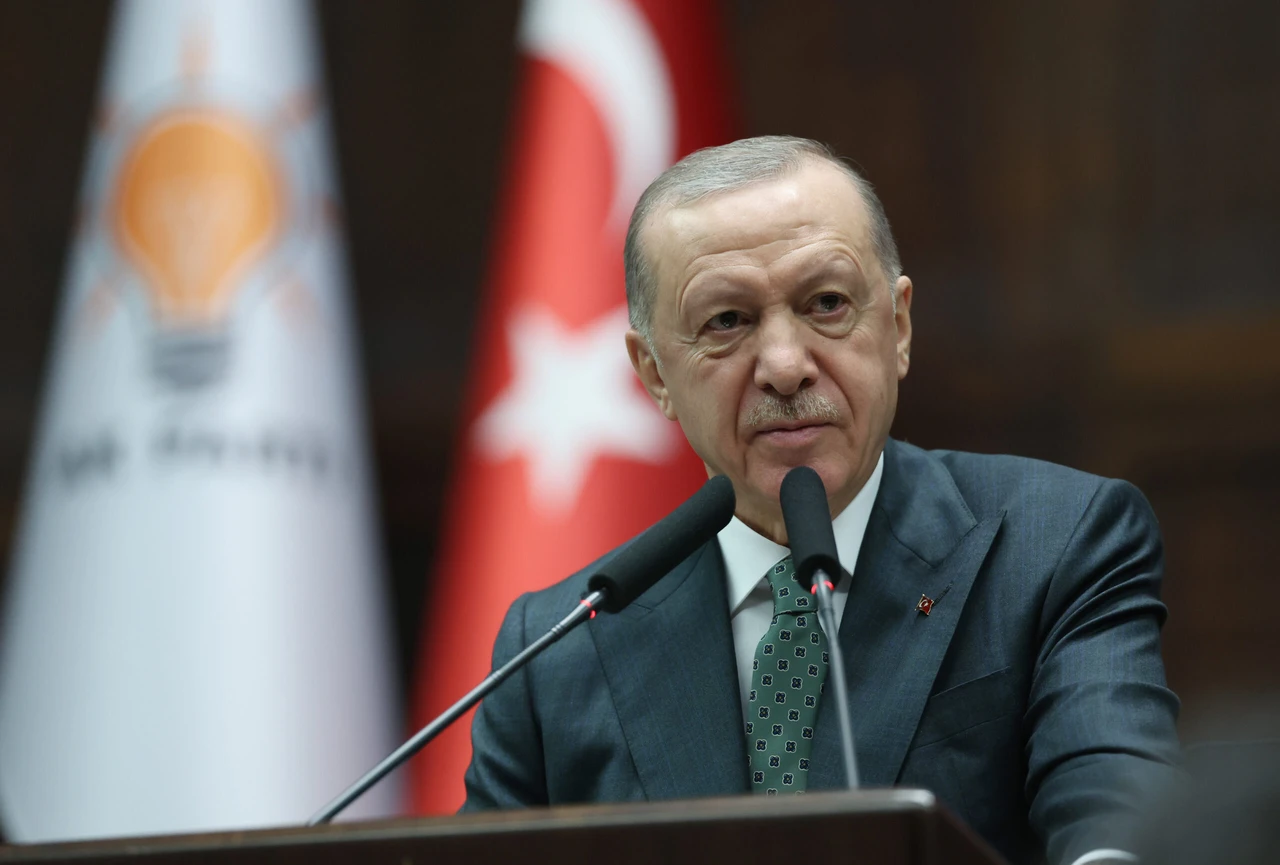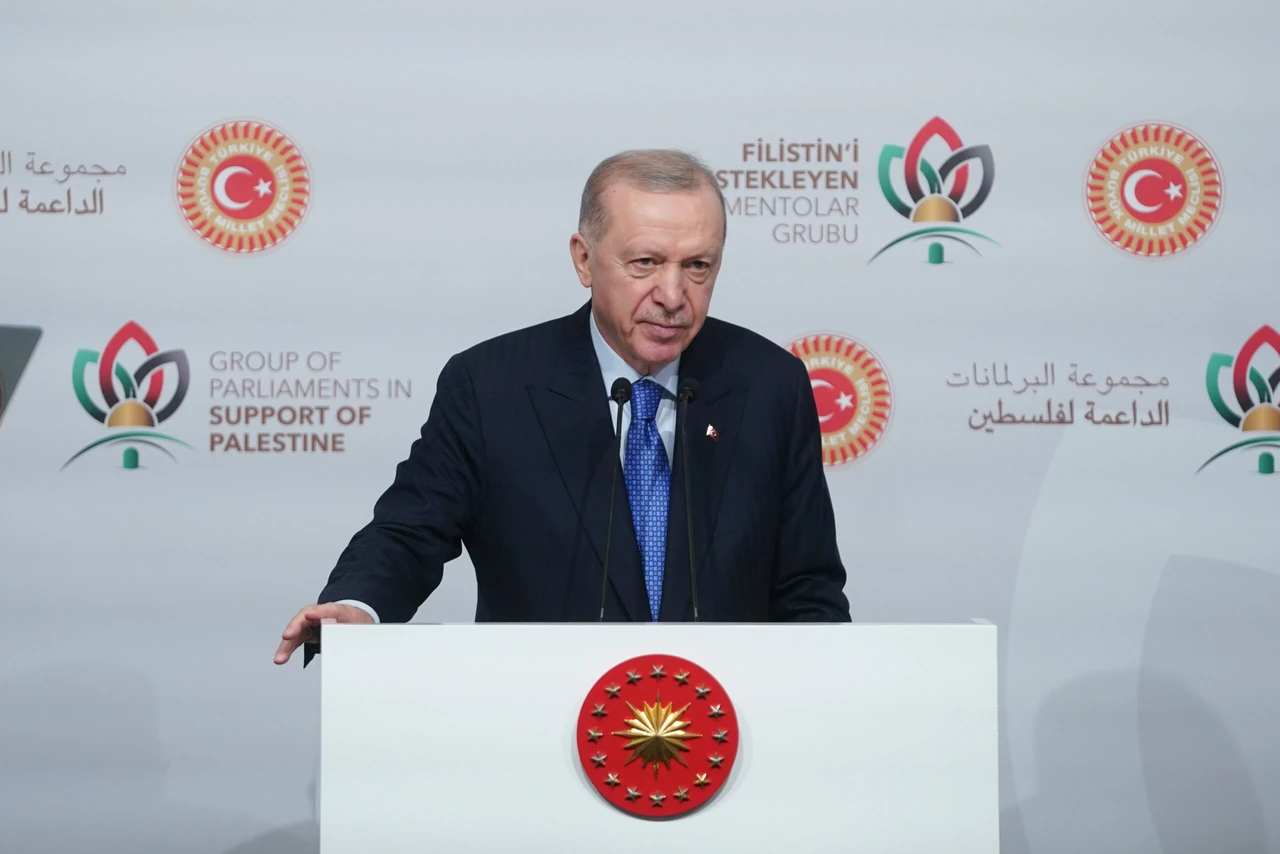Ruling AK Party ramps up efforts to implement reform agenda
President and the leader of the ruling Justice and Development Party (AK Party) Recep Tayyip Erdogan’s prior assertion about the possibility of adopting Ankara Criteria in lieu of the Copenhagen Criteria has set the stage for significant developments within the AK Party, signaling a proactive approach toward reform initiatives.
The General Vice Chairman of the ruling AK Party Efkan Ala has affirmed this commitment, highlighting a comprehensive reform agenda across various sectors.
Ankara Criteria: Erdogan’s assertion sets stage
The AK Party has intensified its endeavors to enact the transformation process Erdogan outlined following the outcomes of the local elections.
During his speech at the General Assembly of the Parliament last October, marking the commencement of the 2nd Legislative Year of the 28th Term of the Turkish parliament, Erdogan articulated a resolute position concerning Türkiye’s EU accession journey.
Erdogan underscored Türkiye’s dedication to democratic principles, justice, and freedoms, stating: “We will persist in our path, even if it means adapting the Ankara Criteria, if required, alongside the Copenhagen Criteria.”
Comprehensive reform agenda
In the 4-year period without elections, serious reforms will be implemented for both the party and Türkiye.
Ala emphasized the AK Party’s readiness to tackle challenges head-on, aiming to implement structural reforms to enhance predictability and foster progress.
He outlined the forthcoming period as one of substantial reforms, with the upcoming year designated as the “gold year” and the subsequent one as the “silver year.”
“Reforms will take place in many areas. They will be simultaneous, multidisciplinary, nuanced reforms,” Ala underlined.
The scope of reforms encompasses diverse areas, spanning from economic policies to legal frameworks and public governance. Ala underscored the importance of seizing the opportunity presented by a period without elections to undertake meticulous and thorough work, addressing issues ranging from food security to administrative efficiency.
Asserting a commitment to swift action, Ala outlined the multifaceted nature of reforms, covering aspects such as free trade, business freedoms, capital mobility, corporate governance, competition policy, employment, education and agricultural development.
Ala stressed the necessity of a permanent constitution to underpin the sustainability of reforms, signaling a rapid and comprehensive reform process aimed at enhancing market predictability and opening avenues for Türkiye’s progress.
He emphasized the government’s determination to navigate regulatory changes effectively, facilitating Türkiye’s advancement and ensuring the continuity of reform efforts.
Need for new Constitution
Ala also underlined the importance of moving past constitutional debates and focusing on building a strong country in various fields.
He highlighted the potential negative impact of ongoing debates on attracting investors and capital to Türkiye, stressing the need for a new constitution, “Let’s make a constitution that will make Türkiye one of the 10 most developed countries in the world,” Ala pledged.
Copenhagen Criteria
The Copenhagen Criteria signify the conditions the EU set for new members to meet at the Copenhagen Summit on June 22, 1993, marking the EU’s acceptance of eastward enlargement. These criteria are divided into three groups: political, economic and adoption of Community legislation.
It serves as a comprehensive framework for evaluating the readiness of aspiring EU members, ensuring that they possess the necessary political, economic and legal foundations to integrate effectively into the Union.



